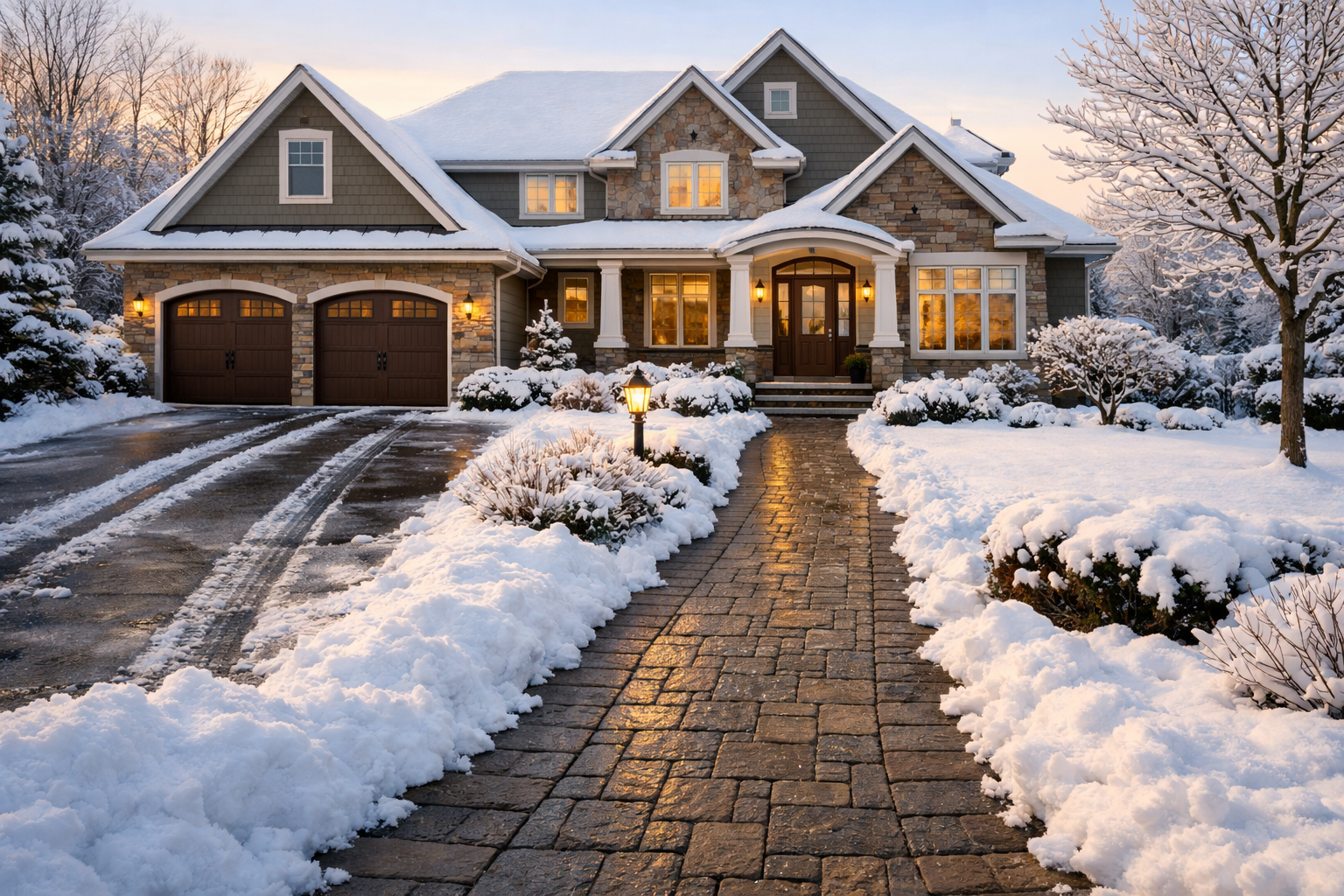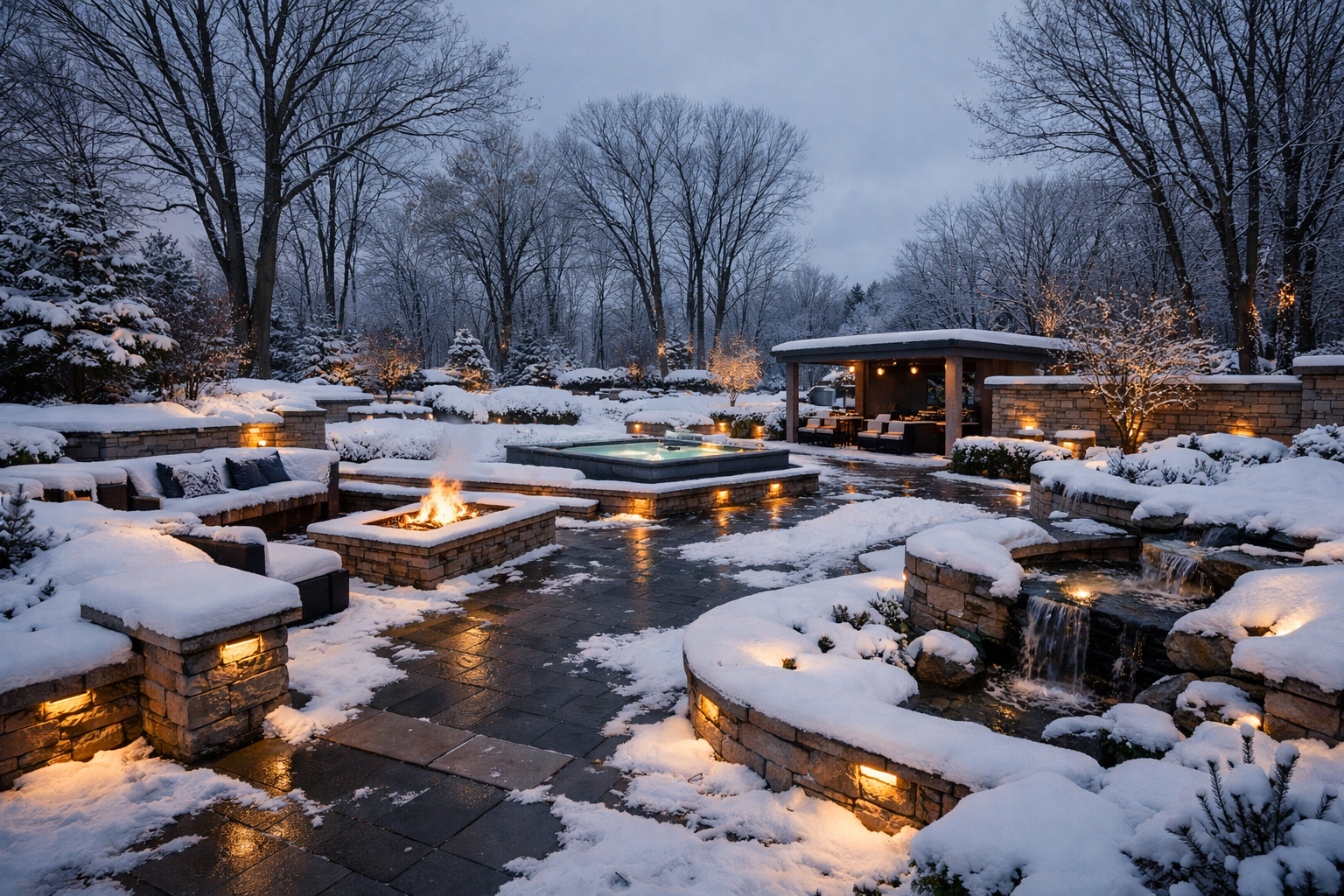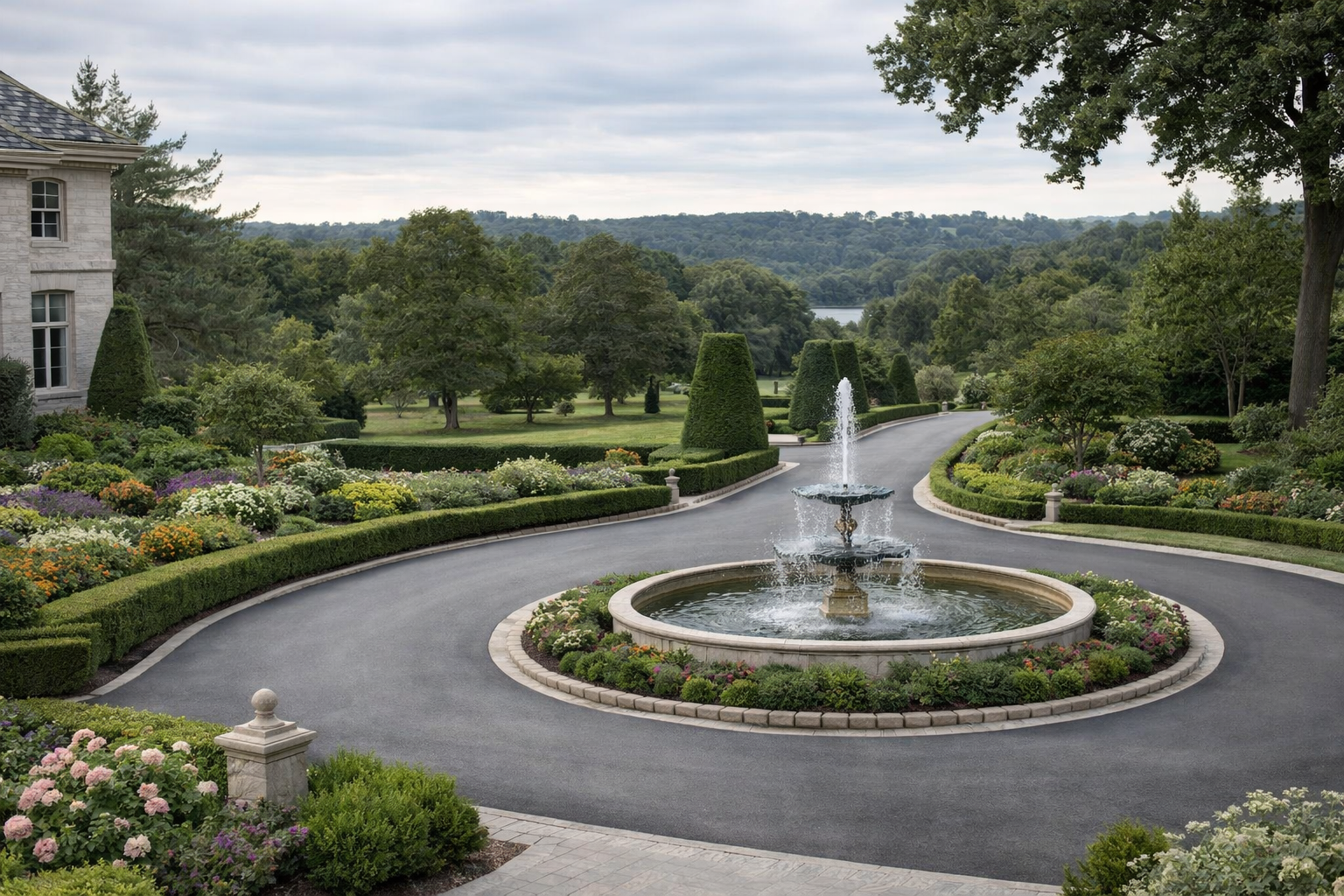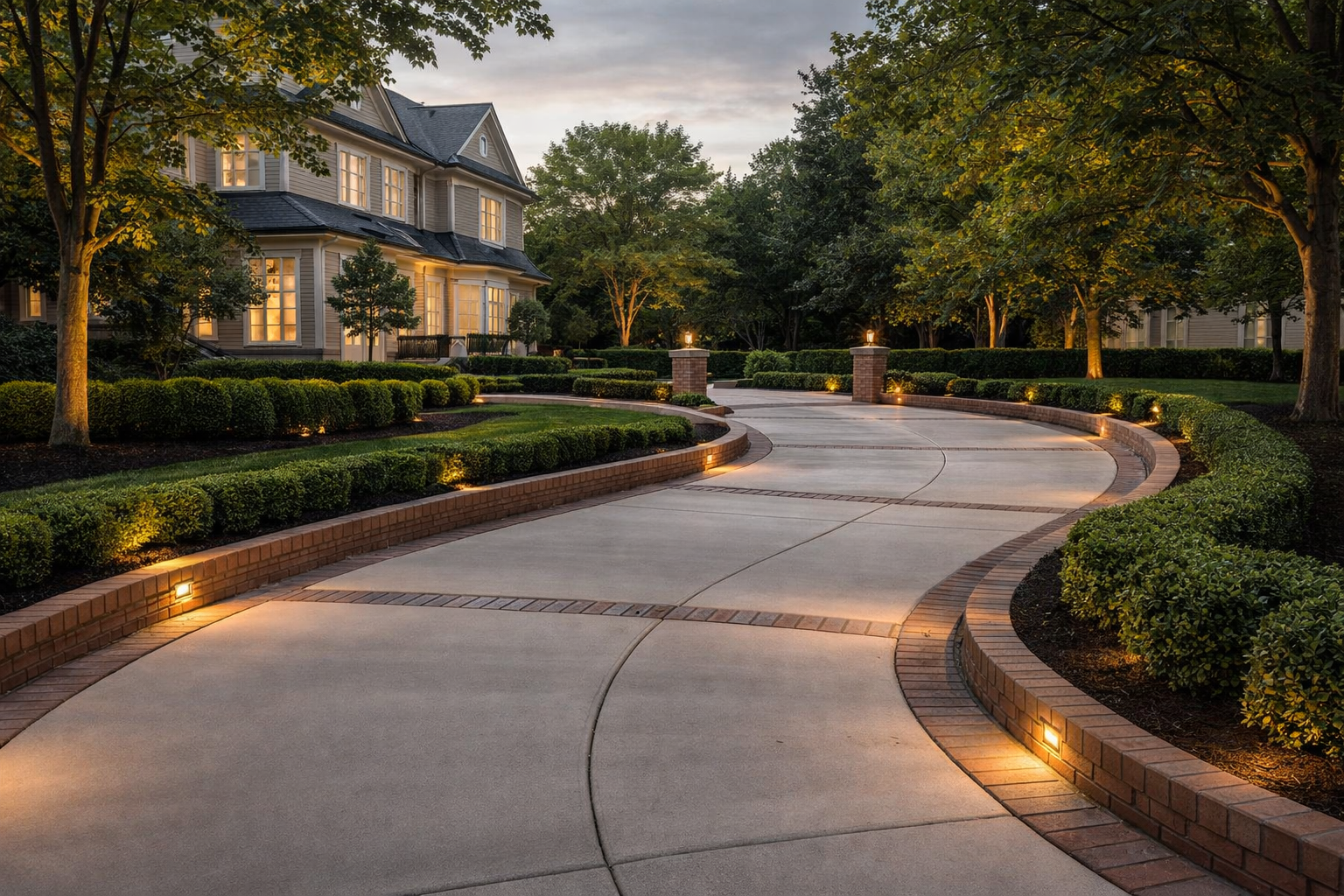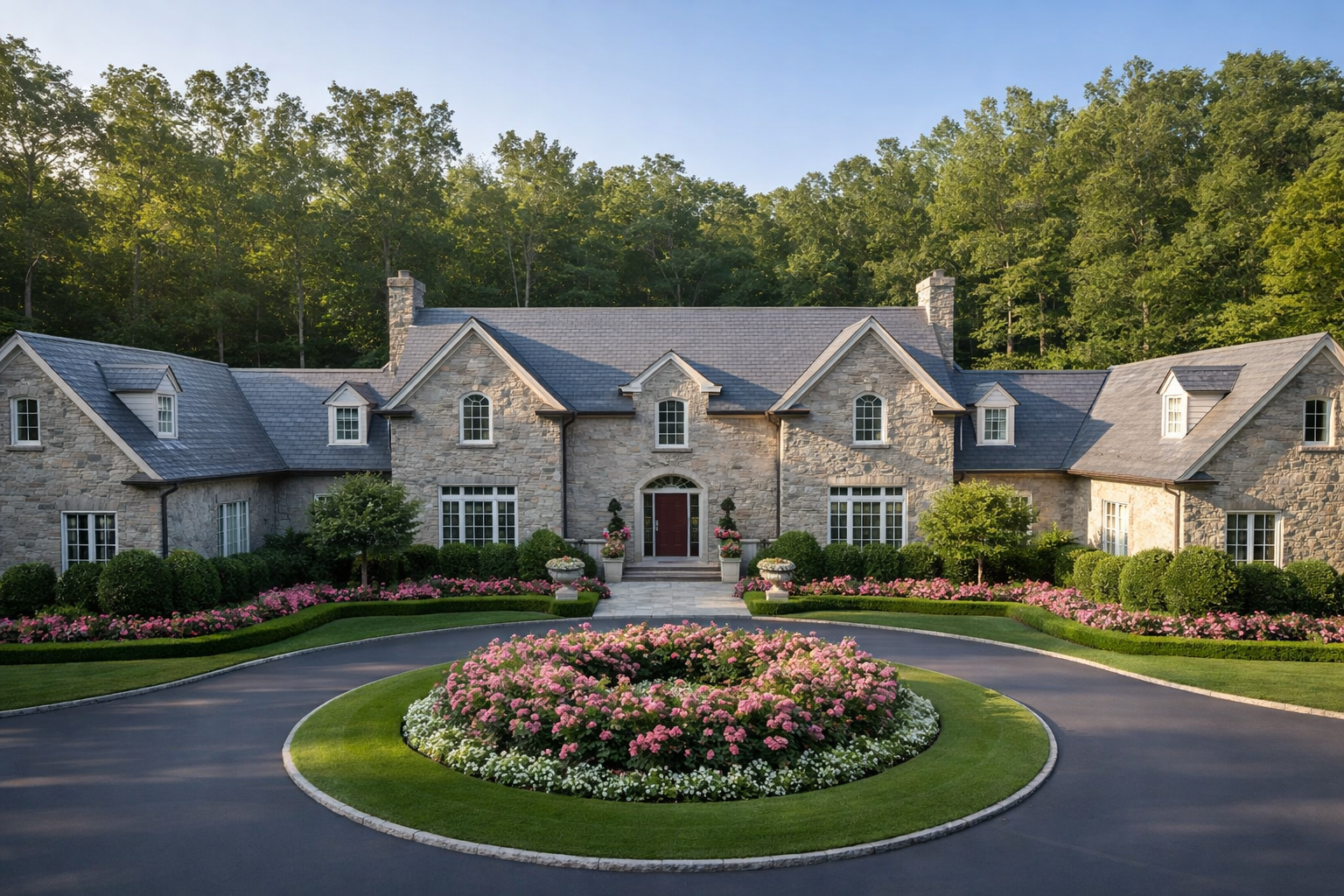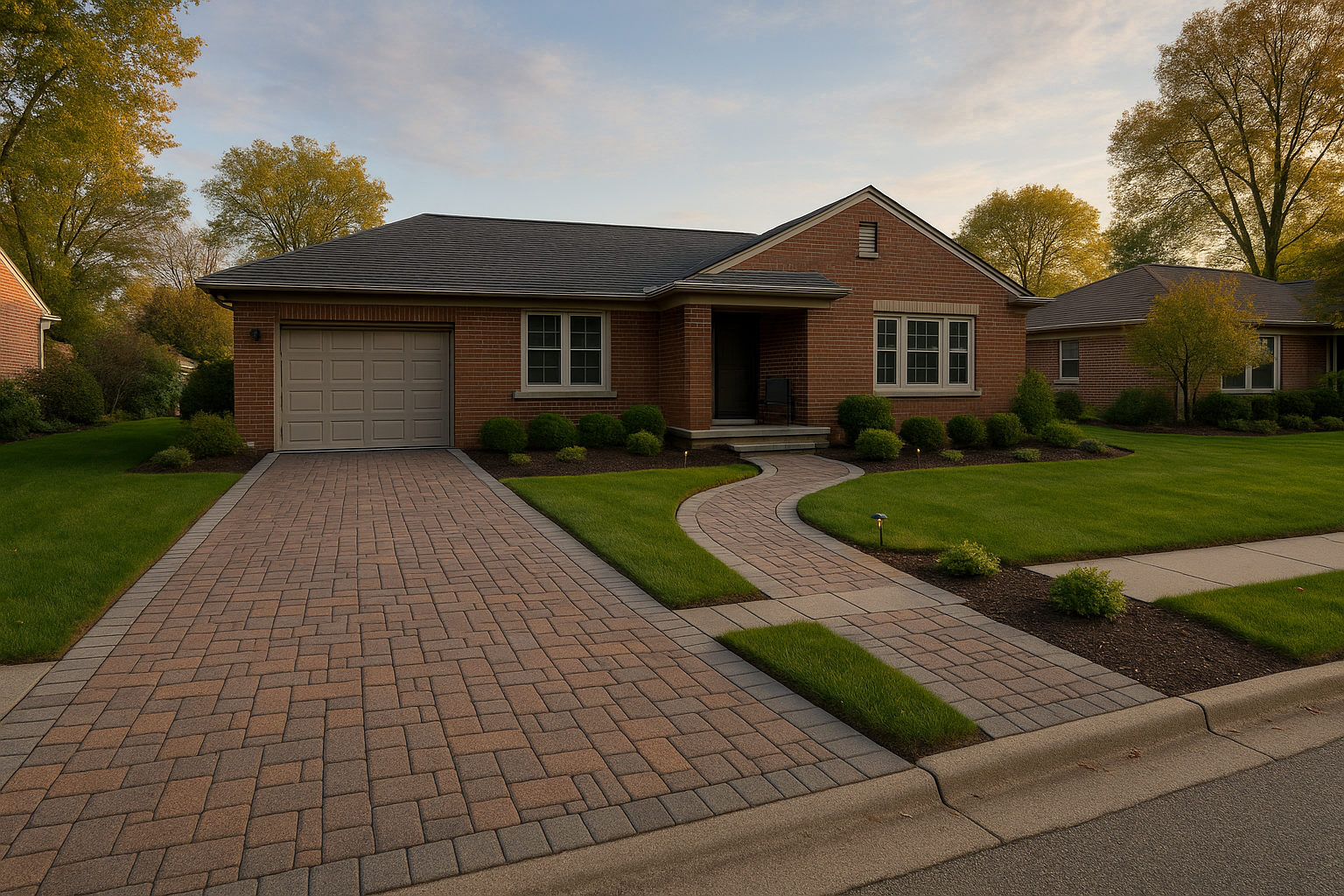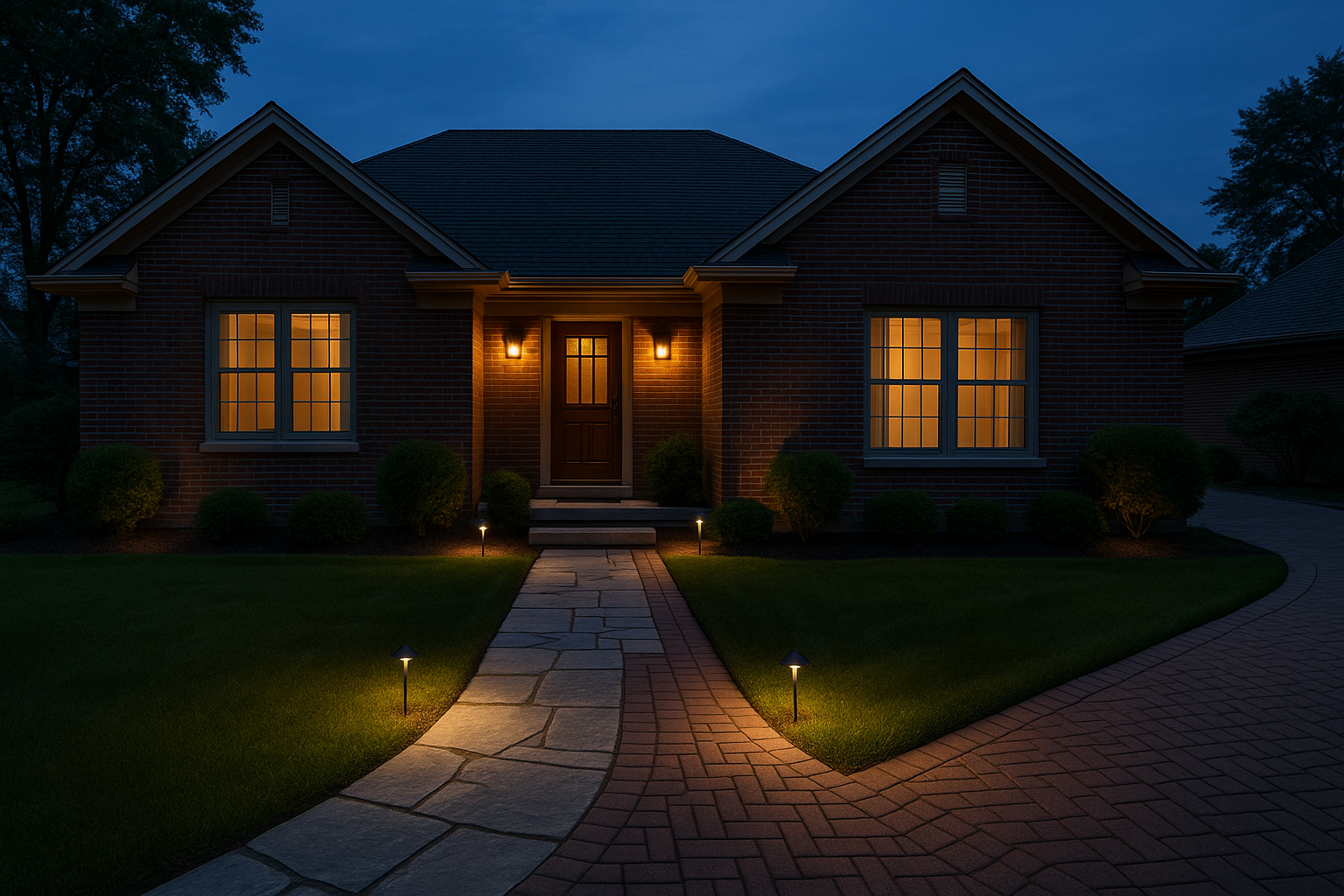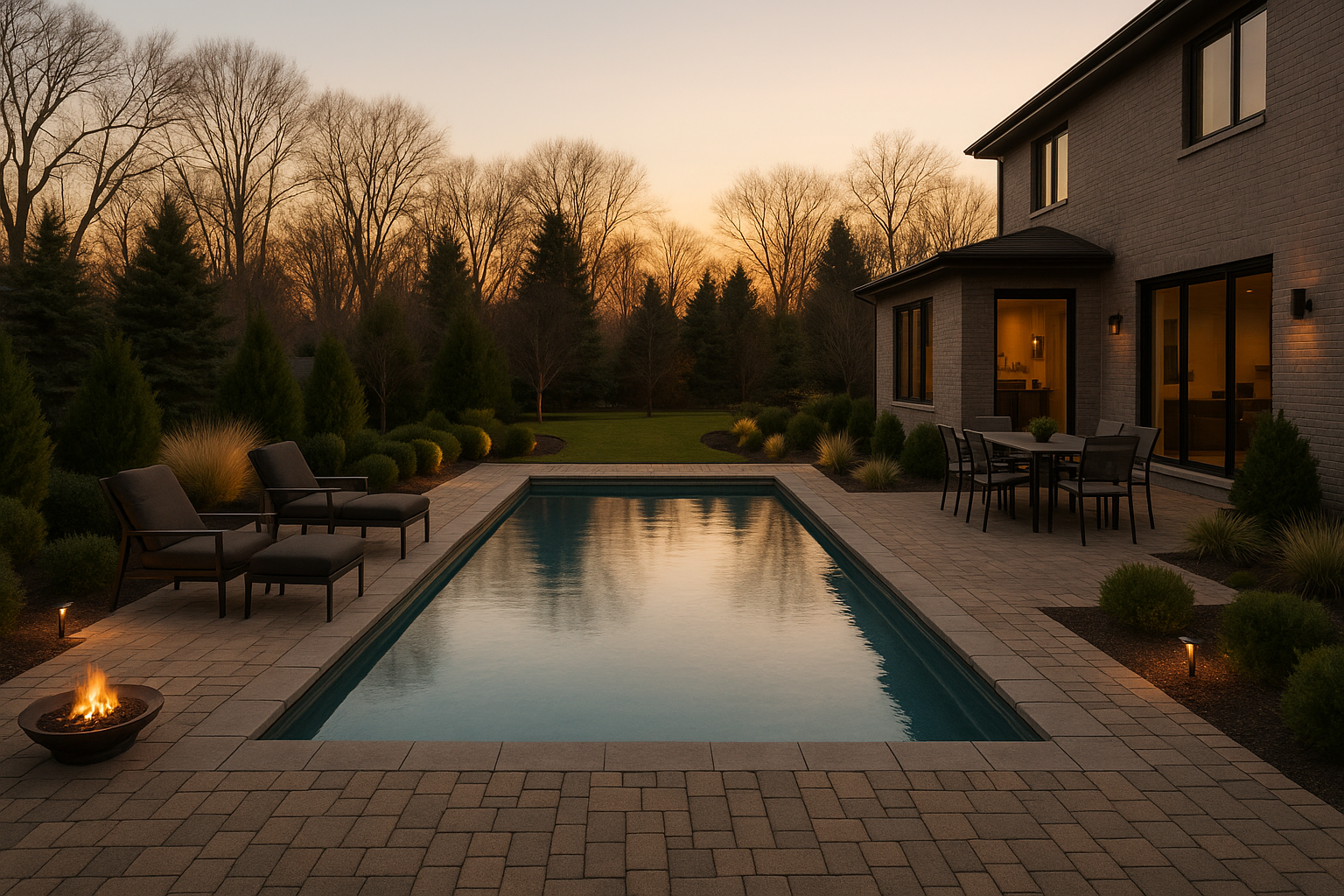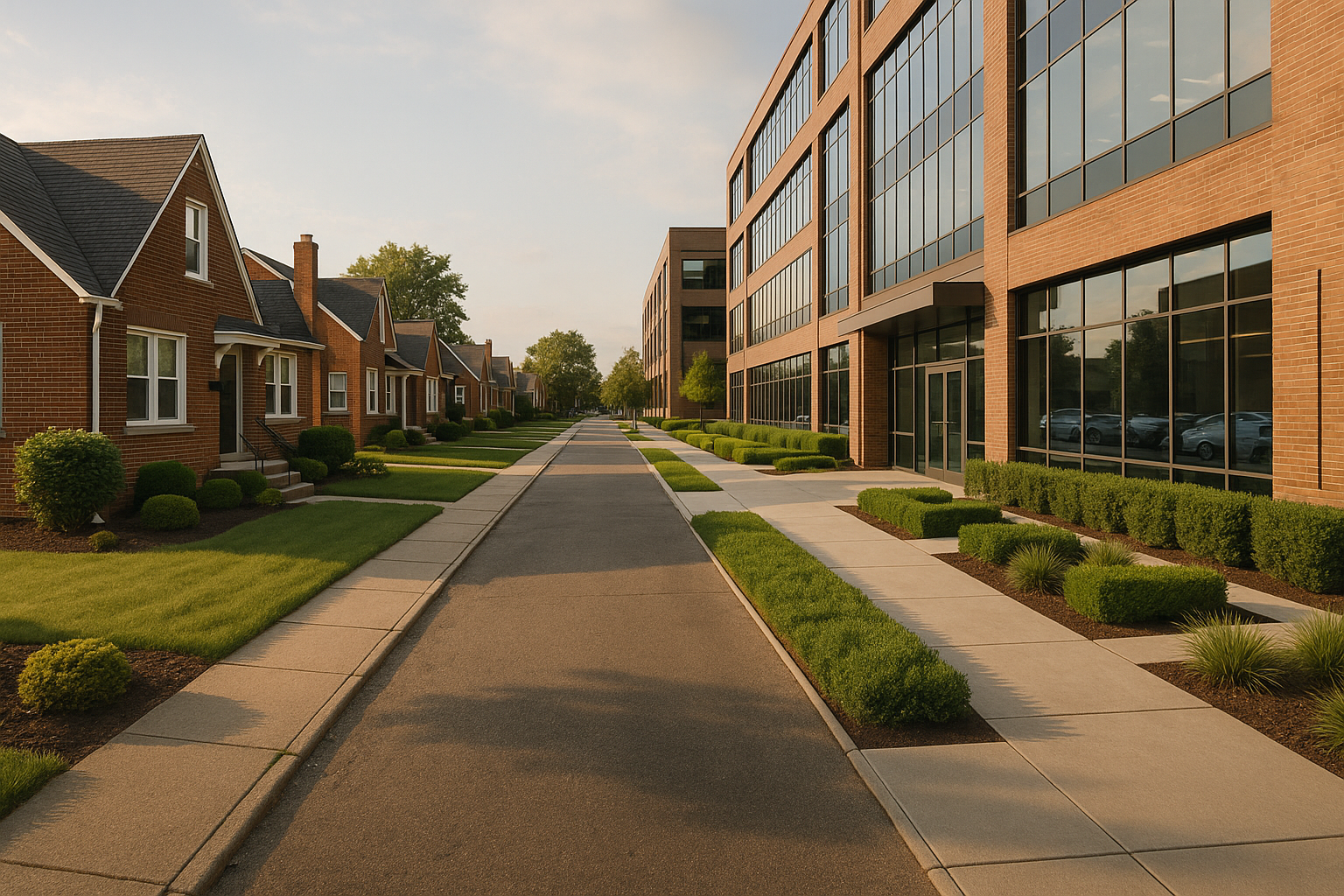Understanding Detroit's Soil: Why It Impacts Your Lawn, Plants, and Hardscape Durability
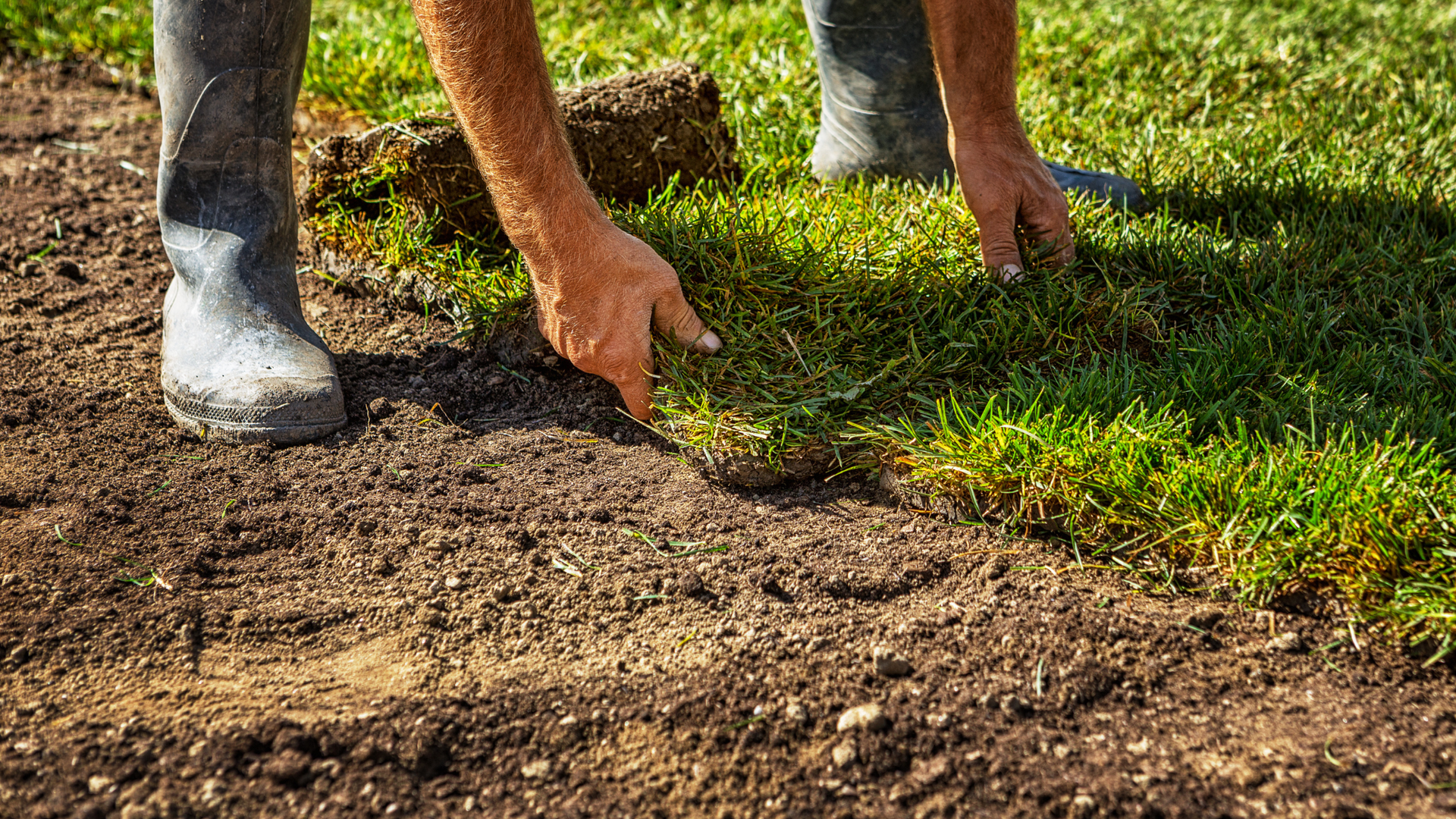
Detroit homeowners may not realize it, but beneath their beautiful yards lies one of the most challenging elements of any landscaping project: the soil itself. While many homeowners browse lush garden photos or admire pristine hardscapes online, those designs often don't reflect the realities of Michigan’s unique ground conditions. The truth is, Detroit's soil isn’t the rich, loamy foundation found in many other parts of the country. Instead, it presents a complex combination of clay-heavy textures, poor drainage, and seasonal shifts that create serious obstacles for everything from lawns to patios.
Understanding how Detroit’s soil works—and how it works against your landscaping—can help homeowners avoid costly mistakes, failed plantings, and premature hardscape damage. More importantly, it explains why working with experienced
detroit landscaping companies who know how to adapt to these conditions is essential for long-term success.
The Composition of Detroit’s Soil
Detroit sits on a natural foundation that was shaped long before a single house or road existed. Left behind by ancient glaciers, much of Southeast Michigan's soil is clay-dominant. And while clay has its benefits for certain applications, it introduces numerous challenges for anyone attempting to build or grow on top of it.
Why Clay Soil Causes So Many Problems
- High Clay Content: Detroit’s soil has small, tightly packed particles that create a dense structure. This density leaves little space for water, nutrients, or air to move freely.
- Poor Drainage: Because water can't easily pass through compacted clay, rainwater often pools on the surface or saturates the upper layers of soil. This creates perfect conditions for root rot, fungal growth, and erosion problems.
- Low Oxygen Availability: Plant roots, like any living tissue, need oxygen. Detroit's clay-heavy soil limits airflow, making it difficult for grass, shrubs, and trees to thrive.
- Slow Infiltration Rate: In some parts of Detroit, it can take days for water to fully penetrate a clay-heavy lawn, leaving surface water that damages plants or seeps toward building foundations.
How Detroit Differs From Other Soil Regions
Homeowners familiar with rich loamy soil or well-draining sandy soil may not immediately realize how different things are here. In loamy soil, nutrients circulate easily and water disperses at an even pace. In Detroit’s clay-heavy ground, those same nutrients may remain locked up or wash away during heavy rainstorms. Without proper soil amendments or grading adjustments, even simple planting or hardscape work can fail much sooner than expected.
This is why professional
michigan landscape company teams invest significant time analyzing soil profiles before starting any meaningful landscaping design or installation.
How Clay Soil Affects Lawn Health
For many homeowners, the first place these soil problems reveal themselves is in the front yard. Lawns require more than just mowing and watering to stay healthy in Detroit’s climate. Beneath that green surface lies a root system constantly battling for survival against dense, compacted soil.
The Struggle for Healthy Turf
- Compacted Soil Chokes Grassroots: Over time, clay soil compresses under the weight of equipment, foot traffic, and even rainfall. As the soil compacts, the air pockets critical for root health shrink, choking out turfgrass from below.
- Standing Water Kills Grass: When rainfall or irrigation water can’t drain, the surface stays saturated. Grass suffocates when roots remain waterlogged for long periods.
- Shallow Root Systems Increase Vulnerability: Since roots can’t penetrate deeply into heavy clay, grass develops shallow systems that dry out quickly in heat or drought.
- Establishment Becomes Difficult: Trying to seed or lay new sod directly on untreated clay often results in patchy growth or immediate plant loss. The lack of soil structure and drainage can turn even expensive sod installations into failures.
This is why so many successful detroit lawn services incorporate core aeration, topdressing, and soil amendments as part of routine care. Consistent lawn service in detroit isn’t just about mowing—it’s about preserving the health of grass that’s constantly fighting an uphill battle against the soil itself.
The Impact on Trees, Shrubs & Garden Plantings
It’s not just lawns that struggle with Detroit’s clay. Trees, shrubs, perennials, and flowers all feel the stress of poorly draining soil from the moment they’re planted.
Why Plant Roots Struggle in Dense Clay
- Limited Oxygen Starves Plant Roots: As with grass, ornamental plants depend on air exchange beneath the surface. Dense clay severely limits that airflow.
- Roots Can't Spread Properly: Instead of expanding deep into the ground, roots remain shallow and vulnerable. This leads to trees and shrubs that are more likely to suffer in windstorms or extreme weather.
- Heaving During Freeze-Thaw Cycles: Detroit winters can be brutal. When moisture in clay freezes and expands, plants physically shift upward. This "heaving" dislodges young trees or perennials, damaging fragile root systems.
- Waterlogged Root Zones: Certain plant species simply can’t tolerate sitting in standing water. Even if drainage is slightly off, shrubs or perennials can drown during Detroit’s rainy springs.
The Critical Role of Soil Preparation
Planting directly into native clay without amending the soil is one of the most common mistakes homeowners make. Professional landscaping companies in detroit routinely dig out heavy clay from planting beds and replace or amend it with organic compost, sand, or loamy mixtures that improve drainage and nutrient availability.
An experienced
greater detroit landscape company knows that without these preparations, even hardy species will struggle to survive beyond their first few seasons.
How Drainage Issues Develop in Clay Soil
Poor drainage is one of the most frequent causes of both landscape and hardscape failures across Metro Detroit. And while it’s easy to blame heavy rains, the real culprit often lies beneath your feet: the soil itself.
Why Drainage Fails in Clay-Dominated Yards
- Surface Runoff Builds Quickly: Because water can't infiltrate fast enough, even light rain can create puddles or flooding.
- Rising Water Table: After multiple rain events, saturated soil holds water near the surface, drowning plants and destabilizing hardscapes.
- Pooling Near Hardscapes: Patios, driveways, and walkways experience water pooling if installers don’t properly grade surfaces to account for poor infiltration.
- Subsurface Drainage Is Often Necessary: For most healthy installations, drainage systems such as French drains, dry creek beds, or properly sloped swales are needed to keep excess water moving away from structures and plantings.
Unfortunately, many homeowners don’t realize these issues exist until after significant damage occurs. Partnering with a professional landscape company who understands the realities of Detroit soil can prevent these headaches before they start. When designing both plant beds and hardscape features, an experienced detroit landscape contractor builds drainage solutions into the foundation of every project.
Hardscape Stability — How Soil Impacts Patios, Pavers & Retaining Walls
When homeowners in Detroit think about landscaping challenges, their focus often stays on plants and lawns. But clay-heavy soil quietly wreaks havoc beneath patios, walkways, driveways, and retaining walls as well. Hardscape failures often originate not from the materials themselves, but from poor preparation and misunderstanding of the soil they sit on.
Why Clay Movement Creates Hardscape Failures
Detroit’s soil expands dramatically when wet and contracts when dry. This constant shifting puts significant stress on rigid structures like patios, brick paver patios, and retaining walls.
Patio Settling: Inadequate sub-base preparation allows pavers to sink or slope unevenly as the ground beneath compresses or shifts with moisture changes.- Paver Shifting: Without proper edge restraints and flexible joints, pavers may shift horizontally over time, leading to uneven surfaces and safety hazards.
- Retaining Wall Bowing or Collapse: Poor drainage behind retaining walls allows hydrostatic pressure to build up in clay-heavy backfill, causing walls to bulge, tilt, or fail entirely.
Many Detroit homeowners mistakenly believe these hardscape issues result from cheap materials or bad weather alone. In reality, improper installation without accounting for soil composition is the underlying problem—a problem best addressed by highly skilled landscape companies detroit who have extensive local experience.
The Role of Proper Excavation & Sub-Base Preparation
High-quality hardscape installation in Detroit begins long before the first paver is laid. Contractors who understand local conditions:
- Excavate deeply to reach stable subsoil beneath clay layers.
- Install multiple layers of crushed gravel, compacted in thin lifts, to create a stable, drainable foundation.
- Use geo-fabrics where necessary to separate clay from base material.
- Design slopes and drainage that actively move water away from hardscape surfaces.
Skipping or shortcutting these steps almost guarantees hardscape movement and failure within just a few freeze-thaw cycles.
How Professional Detroit Landscapers Design for Soil Stability
Experienced Detroit landscapers don’t simply adapt general design templates. They create custom solutions engineered for the specific challenges of Michigan’s unpredictable climate and soil behavior. This specialized approach dramatically extends the life of both softscape and hardscape installations.
Site Grading to Control Runoff
One of the first steps in any successful design is proper grading. Slopes are adjusted to:
- Direct rainwater away from structures and patios.
- Prevent pooling near planting beds.
- Reduce soil erosion on hillsides or uneven ground.
Effective grading reduces hydrostatic pressure on hardscapes while also protecting plants from drowning.
Proper Sub-Bases for Hardscapes
Whether building brick paver patios, walkways, or driveways, professional landscape companies detroit focus on:
- Excavating beyond standard depth to allow for thicker gravel bases.
- Using clean angular aggregate that compacts tightly and drains well.
- Incorporating edge restraints and polymeric sand to lock pavers in place while allowing minor movement without cracking.
Amending Planting Areas for Long-Term Health
For planting beds, Detroit professionals rarely leave native clay untouched. Instead, they amend soils with:
- Organic matter to increase microbial activity and oxygen levels.
- Compost and sand blends to loosen dense clay structure.
- Specialized topsoil blends that balance moisture retention with drainage.
These amendments create a sustainable growing environment for shrubs, trees, and perennials that would otherwise struggle.
Incorporating Drainage Solutions
Because Detroit's clay holds water, proper drainage design is non-negotiable. Leading landscape company services often include:
- French drains beneath problem areas or behind retaining walls.
- Dry creek beds that carry surface water away from vulnerable zones.
- Swales and berms to redirect heavy rainfall across properties without flooding plant beds or foundations.
By proactively managing water from the start, experienced detroit landscaping companies create low-maintenance, long-lasting landscapes built for Detroit's real-world conditions.
Why DIY Approaches Often Fail in Detroit’s Soil Conditions
While many homeowners attempt landscaping projects themselves, few fully grasp how quickly Detroit’s soil can undermine their hard work. DIY shortcuts often result in costly failures that could have been avoided with professional expertise.
The Consequences of Inadequate Base Preparation
Patio kits from big-box stores rarely address the depth of excavation needed for stable installations in Detroit’s climate. Without deep sub-bases and careful compaction, paver surfaces may remain beautiful for a season or two before developing uneven surfaces, pooling water, or dangerous tripping hazards.
Over-Reliance on Topsoil
Many well-meaning homeowners spread thin layers of store-bought topsoil over clay, hoping it will fix poor growing conditions. In reality:
- Water sits trapped on the topsoil/clay interface.
- Shallow plant roots never establish properly.
- Moisture problems worsen, not improve.
Professional landscaping in detroit mi involves thoroughly blending or replacing clay with properly amended soil mixes, not simply layering over the problem.
Planting Unsuitable Species
Non-native plants accustomed to sandy or loamy conditions often fail in heavy clay. Without proper species selection—or incorrect planting depth—new trees, shrubs, or perennials may suffer dieback or root rot.
Ignoring Drainage Until Problems Arise
Homeowners may install patios, retaining walls, or flower beds without considering how rainwater will flow across the property. By the time standing water or erosion appears, repairs are far more expensive.
These repeated failures highlight why experienced
greater detroit landscape company teams are worth the investment from day one.
Long-Term Maintenance Considerations for Detroit Soil
Even when properly designed and installed, Detroit landscapes require thoughtful long-term care to address the ongoing movement of clay-based soil.
Seasonal Soil Monitoring
After each winter freeze-thaw cycle, it's wise to:
- Check for signs of patio settling or shifting pavers.
- Inspect retaining walls for any bowing or separation.
- Look for standing water or new low spots near planting beds.
Annual evaluations by a professional michigan landscape company can catch small issues before they grow into expensive repairs.
Hardscape Inspections
Over time, even well-built hardscapes may require:
- Minor re-leveling of pavers.
- Reapplication of polymeric joint sand.
- Drain cleaning to prevent backups.
- Repacking or repairing gravel bases under high-traffic areas.
Scheduled professional inspections extend the lifespan of your investment.
Lawn Aeration & Topdressing
For detroit lawn services, seasonal aeration is critical to loosen compacted clay and allow oxygen, water, and nutrients into the root zone. Topdressing with compost also helps build healthier, more drought-tolerant turf over time.
Ongoing Adjustments as Soil Settles
Because clay soil is always slowly shifting, adjustments may be necessary every few years to maintain optimal drainage slopes, plant health, and hardscape integrity.
Work With Detroit’s Local Landscape Experts
Detroit’s soil creates challenges that simply don’t exist in many other parts of the country. From compacted lawns to shifting patios and waterlogged planting beds, the risks of ignoring soil conditions are too costly to overlook. Partnering with experienced local professionals who understand the realities of Detroit’s ground ensures that your landscape not only looks great today, but holds up beautifully for many years to come.
For customized landscape solutions built specifically for Detroit’s soil conditions, visit Rohto Landscaping to schedule a consultation.

